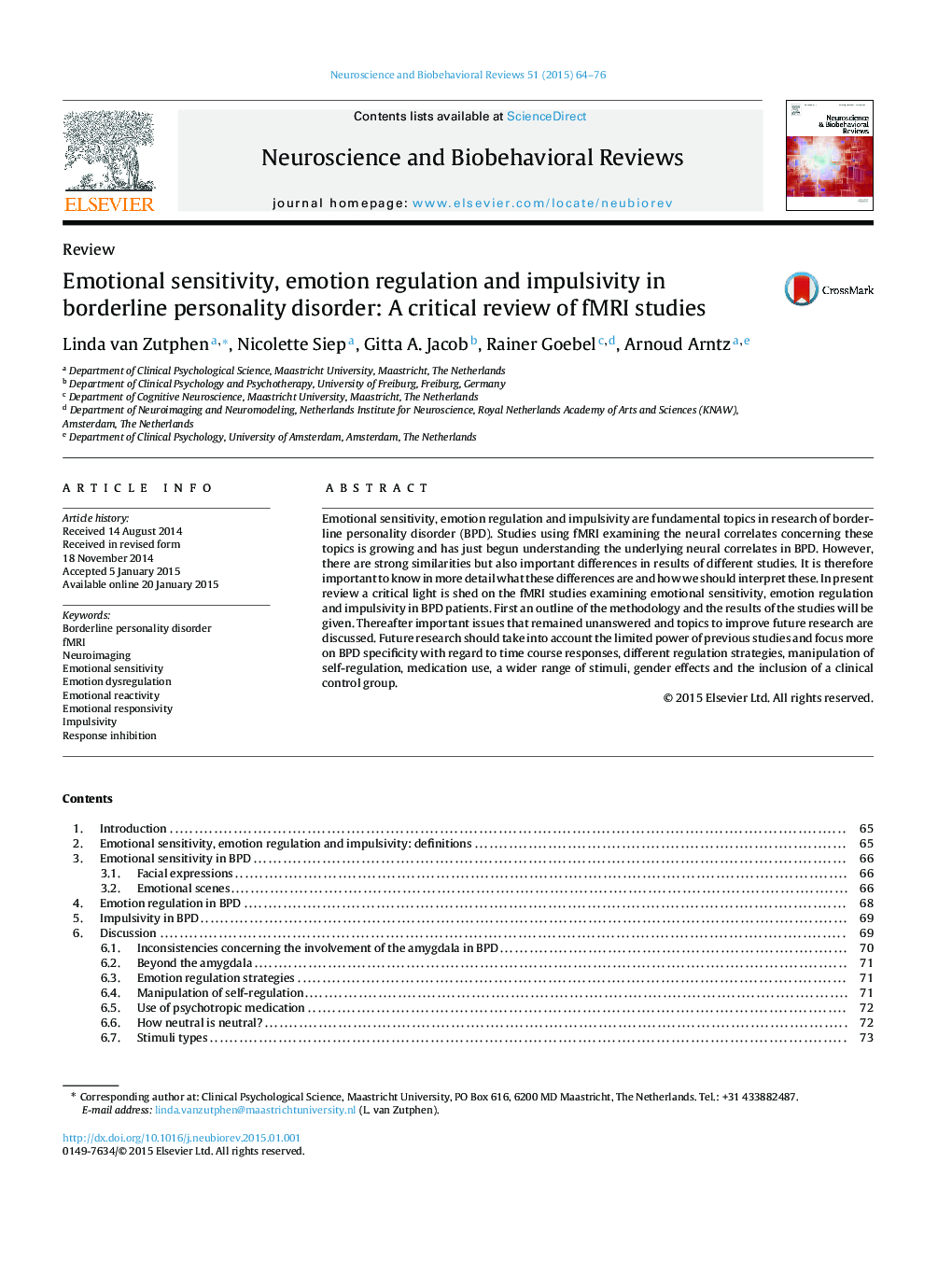| Article ID | Journal | Published Year | Pages | File Type |
|---|---|---|---|---|
| 937675 | Neuroscience & Biobehavioral Reviews | 2015 | 13 Pages |
•We reviewed 15 fMRI studies on emotional responsivity and impulsivity in BPD.•Results across studies are more inconclusive than previously suggested.•Future studies should increase statistical power and focus more on BPD specificity.•Frontolimbic activity can explain difficulties of emotional responsivity in BPD.•Failure of inhibition possibly underlies impulsivity in BPD.
Emotional sensitivity, emotion regulation and impulsivity are fundamental topics in research of borderline personality disorder (BPD). Studies using fMRI examining the neural correlates concerning these topics is growing and has just begun understanding the underlying neural correlates in BPD. However, there are strong similarities but also important differences in results of different studies. It is therefore important to know in more detail what these differences are and how we should interpret these. In present review a critical light is shed on the fMRI studies examining emotional sensitivity, emotion regulation and impulsivity in BPD patients. First an outline of the methodology and the results of the studies will be given. Thereafter important issues that remained unanswered and topics to improve future research are discussed. Future research should take into account the limited power of previous studies and focus more on BPD specificity with regard to time course responses, different regulation strategies, manipulation of self-regulation, medication use, a wider range of stimuli, gender effects and the inclusion of a clinical control group.
